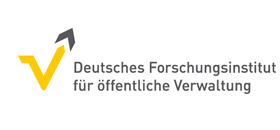Refine
Year of publication
Document Type
- Article (1358)
- Book (901)
- Part of a Book (867)
- Public lecture (678)
- Conference Proceeding (328)
- Jugend-Check (256)
- Contribution to a Periodical (225)
- Review (185)
- Working Paper (160)
- Part of Periodical (142)
Language
- German (4532)
- English (900)
- Other Language (113)
- French (91)
- Spanish (52)
- Multiple languages (11)
- Russian (1)
Is part of the Bibliography
- no (5700)
Keywords
- Bildung (185)
- Arbeit (184)
- Familie (138)
- Deutschland (137)
- Politik (85)
- Digitales (77)
- Gesellschaft (72)
- Freizeit (67)
- Gesundheit (67)
- Umwelt (67)
Institute
- Lehrstuhl für Volkswirtschaftslehre, insbesondere Wirtschafts- und Verkehrspolitik (Univ.-Prof. Dr. Dr. h.c. Andreas Knorr) (346)
- Lehrstuhl für Öffentliches Recht, Finanz- und Steuerrecht (Univ.-Prof. Dr. Joachim Wieland) (329)
- Lehrstuhl für Öffentliches Recht, Staatslehre und Rechtsvergleichung (Univ.-Prof. Dr. Dr. h.c. Karl-Peter Sommermann) (318)
- Lehrstuhl für Öffentliches Recht, insbesondere deutsches und europäisches Verwaltungsrecht (Univ.-Prof. Dr. Ulrich Stelkens) (266)
- Lehrstuhl für Öffentliches Recht, insbesondere Europarecht und Völkerrecht (Univ.-Prof. Dr. Wolfgang Weiß) (265)
- Lehrstuhl für Verwaltungswissenschaft, Staatsrecht, Verwaltungsrecht und Europarecht (Univ.-Prof. Dr. Mario Martini) (249)
- Lehrstuhl für Sozialrecht und Verwaltungswissenschaft (Univ.-Prof. Dr. Constanze Janda) (200)
- Lehrstuhl für Politikwissenschaft (Univ.-Prof. Dr. Stephan Grohs) (188)
- Lehrstuhl für vergleichende Verwaltungswissenschaft und Policy-Analyse (Univ.-Prof. Dr. Michael Bauer) (128)
- Lehrstuhl für Hochschul- und Wissenschaftsmanagement (Univ.-Prof. Dr. Michael Hölscher) (116)
Ausgabe 19 – 18. Januar 2024
(2024)
Inhaltsübersicht:
Prüfungsordnung für den Masterstudiengang Master of Laws Staat und Verwaltung in Europa der Deutschen Universität für Verwaltungswissenschaften Speyer (MasterO LL.M.)
Prüfungsordnung für den Masterstudiengang Master of Arts Public Administration der Deutschen Universität für Verwaltungswissenschaften Speyer (MasterO M.A. Public Administration)
Erste Ordnung zur Änderung der Satzung der Hörerschaft der Deutschen Universität für Verwaltungswissenschaften Speyer
Erste Ordnung zur Änderung der Beitragsordnung der Hörerschaft der Deutschen Universität für Verwaltungswissenschaften Speyer
Ausgabe 17 – 25. Juli 2023
(2023)
Ausgabe 16 – 18. April 2023
(2023)
Ausgabe 13 – 17. April 2020
(2020)
Inhaltsübersicht:
4. Ordnung zur Änderung der Prüfungsordnung für den Masterstudiengang Master of Public Administration Wissenschaftsmanagement der Deutschen Universität für Verwaltungs-wissenschaften Speyer
4. Ordnung zur Änderung der Studien- und Prüfungsordnung für das Verwaltungswissen-schaftliche Aufbaustudium an der Deutschen Hochschule für Verwaltungswissenschaften Speyer
Ausgabe 10 – 23. Januar 2017
(2017)
Sommersemester 2023
(2023)
Wintersemester 2022/2023
(2023)
Sommersemester 2022
(2022)
Wintersemester 2021/2022
(2022)
Sommersemester 2021
(2021)
Wintersemester 2020/2021
(2021)
Sommersemester 2020
(2020)
Wintersemester 2019/2020
(2020)

